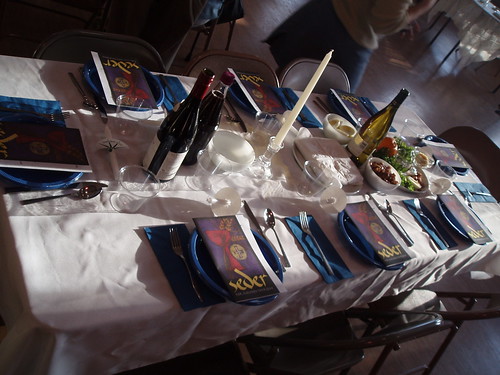Lenten Devotion: Easter Sunday, April 8
Christ the Lord is Risen Today
United Methodist Hymnal #302
Words: Charles Wesley, 1739
Music: Lyra Davidica, 1708
Christ the Lord is risen today, Alleluia!
Earth and heaven in chorus say, Alleluia!
Raise your joys and triumphs high, Alleluia!
Sing, ye heavens, and earth reply, Alleluia!
2
Love's redeeming work is done, Alleluia!
Fought the fight, the battle won, Alleluia!
Death in vain forbids him rise, Alleluia!
Christ has opened paradise, Alleluia!
3
Lives again our glorious King, Alleluia!
Where, O death, is now thy sting? Alleluia!
Once he died our souls to save, Alleluia!
Where's thy victory, boasting grave? Alleluia!
4
Soar we now where Christ has led, Alleluia!
Following our exalted Head, Alleluia!
Made like him, like him we rise, Alleluia!
Ours the cross, the grave, the skies, Alleluia!
5
Hail the Lord of earth and heaven, Alleluia!
Praise to thee by both be given, Alleluia!
Thee we greet triumphant now, Alleluia!
Hail the Resurrection, thou, Alleluia!
6
King of glory, soul of bliss, Alleluia!
Everlasting life is this, Alleluia!
Thee to know, thy power to prove, Alleluia!
Thus to sing, and thus to love, Alleluia!
Each Easter Sunday millions of people around the world attend services of worship, some of them for the first and only time all year. Nearly all of those worship services in the Protestant or Evangelical tradition begin with a bombastic rendition of the hymn, “Christ the Lord Is Risen Today.”
How does one account for the immense popularity of Charles Wesley’s resonant Easter hymn? Maybe it has something to do with that persistently repetitive Alleluia, our ancient exclamation of praise and rejoicing. If you attended worship at Christ Church on the first Sunday of Lent, you saw Katherine Turpin lead our children in a ritual that placed the word “Alleluia” into the closet for the duration of the Lenten season. Katherine reminded us of the centuries-old tradition of abstinence from speaking or singing Alleluia during Lent. We temporarily put our Alleluias in the closet to remind ourselves that Lent is a time of reflection, repentance, and remembrance.
There are moments like that in our personal lives, as well; situations when we need to put a portion of ourselves away in a safe place apart from public view. These can be times of grief, of indecision, of depression, and of transition. Sometimes the need to hide a part of ourselves is completely out of our control, placed on us by expectations from our job, our peers, our family, or our environment. The Lenten season gives us the opportunity to express these heavier emotions in the context of worship.
Having grown up in a different religious tradition, I never really experienced a season like Lent. Worshiping God in my tradition meant singing Alleluias every Sunday (and Sunday night, and Wednesday night Bible study!) There were parts of my life that were deeply hidden from my family, from me, and most especially from my limited understanding of an Alleluia-only God. How could I genuinely sing the Lord’s song when my heart was lost in such a strange land?
The Easter miracle has much greater significance for me now that it is preceded by a season of quiet contemplation. I am no longer plagued with guilt for keeping parts of myself sheltered away from harm. The third chapter of Ecclesiastes reminds us that we need to allow ourselves time for weeping and mourning as well as laughing and dancing. This Easter Sunday, after my own time of weeping and searching and mending and healing, I look forward to the supreme joy of finally letting my heartfelt Alleluia out of the closet.

